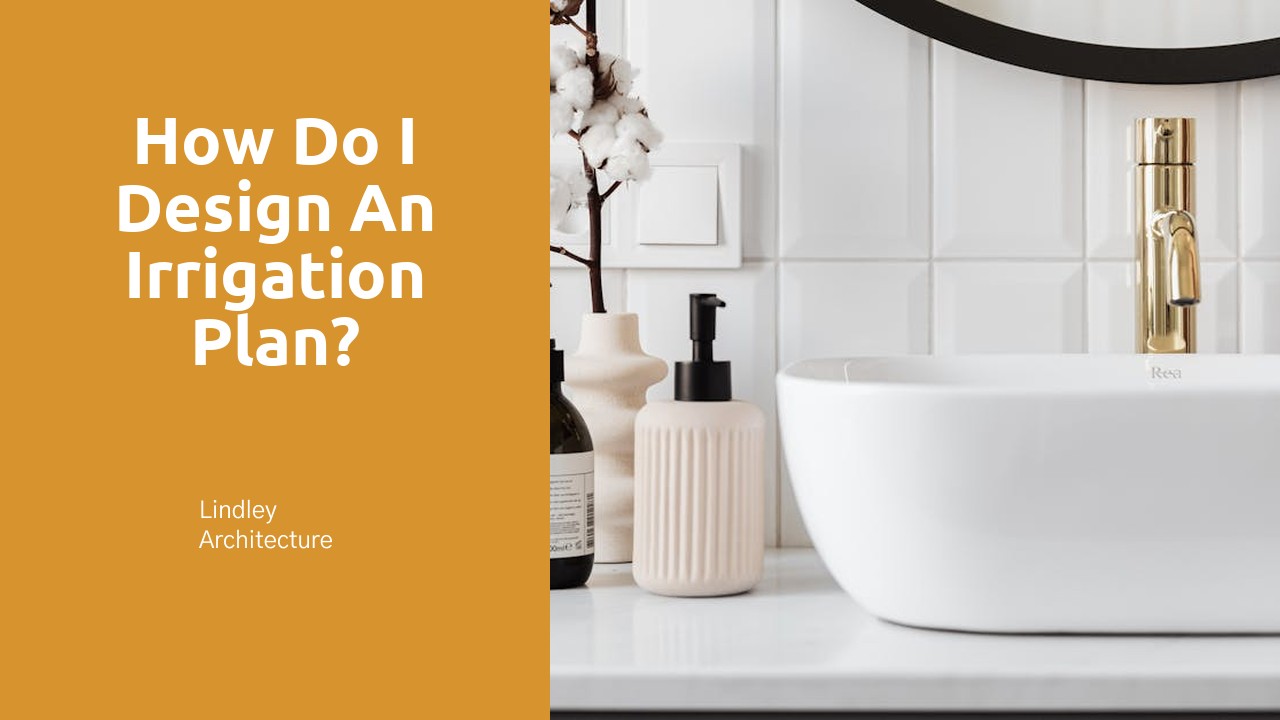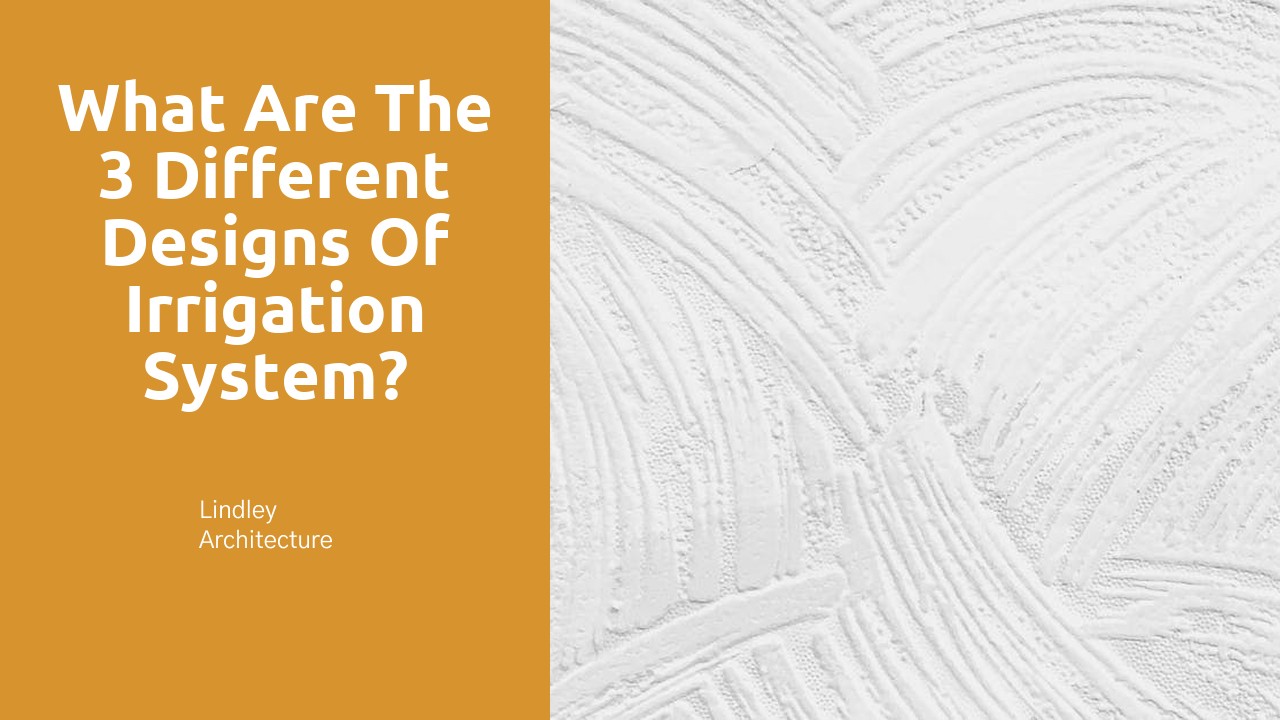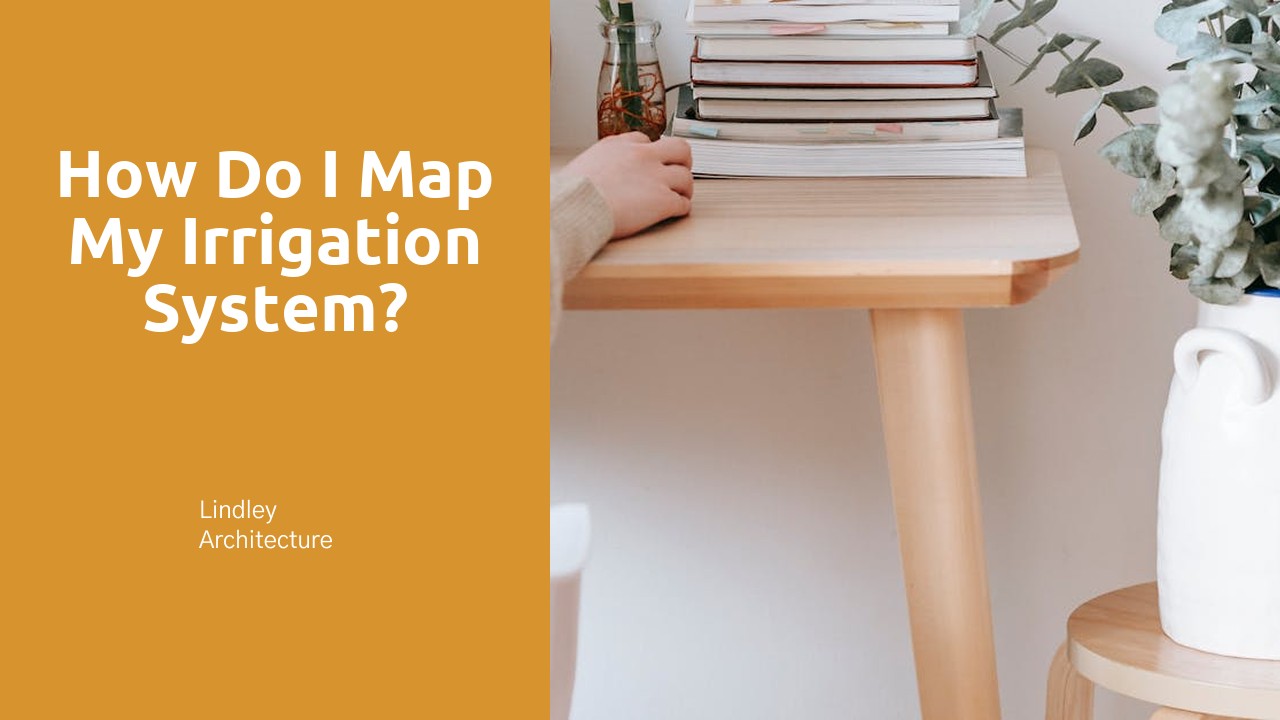
Table Of Contents
Incorporating Automation in Your Irrigation Setup
When it comes to enhancing the efficiency and convenience of your irrigation system, incorporating automation is a valuable approach. Automating your irrigation setup can significantly streamline the watering process, ensuring that your plants receive the right amount of water at the optimal times. In Irrigation Design in Guelph, integrating automated features like timers, sensors, and programmable controllers can help you manage your water usage effectively and adapt to changing weather conditions without manual intervention.
Moreover, automation enables precise control over water distribution, reducing wastage and promoting water conservation. By customizing schedules based on specific plant requirements and environmental factors, you can optimize the health of your vegetation while minimizing water usage. In Irrigation Design in Guelph, embracing automation not only simplifies maintenance but also contributes to sustainable water management practices, benefiting both your garden and the environment.
Benefits of Remote Monitoring and Control Systems
Remote monitoring and control systems offer significant advantages in optimizing irrigation practices. These systems allow for real-time tracking of water usage, enabling precise adjustments to irrigation schedules based on actual environmental conditions. In Irrigation Design in Kitchener, remote monitoring systems offer the convenience of managing irrigation operations from afar, ensuring that water is efficiently utilized without the need for constant manual intervention.
Moreover, remote monitoring and control systems provide valuable data insights that can enhance decision-making processes. By analyzing information collected by these systems, irrigation professionals in Kitchener can identify patterns, trends, and potential inefficiencies in their water management strategies. This data-driven approach enables proactive adjustments to be made, leading to improved water conservation efforts and overall system performance.
Maintenance Tips for Longevity of Your Irrigation System
Regular maintenance is key to ensuring the longevity and optimal performance of your irrigation system. In Irrigation Design in Guelph, it is recommended to schedule routine inspections to check for leaks, clogs, or damaged components. Addressing these issues promptly can prevent further damage and ensure that your system continues to operate efficiently. Additionally, be sure to clean filters, nozzles, and valves regularly to prevent blockages and maintain proper water flow throughout your irrigation network.
Furthermore, adjusting your system's watering schedule according to the changing seasons and weather conditions can help conserve water and prevent overwatering or underwatering. By monitoring your system closely and making necessary adjustments, you can ensure that your plants receive the right amount of water at the right time, promoting healthy growth and minimizing water wastage. Remember, a well-maintained irrigation system not only saves water but also contributes to the overall health and vitality of your landscape.
Inspecting and Repairing Leaks in the Water Distribution Network
Inspecting and repairing leaks in the water distribution network is a crucial aspect of maintaining an efficient irrigation system. In Irrigation Design in Guelph, it is essential to regularly inspect pipelines, valves, and fittings for any signs of leakage. Even small leaks can result in significant water wastage over time, impacting the system's performance and overall water conservation efforts.
When identifying leaks, it is important to address them promptly to prevent further damage and ensure the system operates at its optimal level. Utilizing appropriate tools and techniques, such as pressure tests and visual inspections, can help pinpoint the location of leaks accurately. By promptly repairing leaks in the water distribution network, irrigation systems can operate more efficiently, conserve water resources, and ultimately save on costs associated with water usage.
Upgrading Your Irrigation Infrastructure for Improved Performance
Upgrading Your irrigation infrastructure to enhance performance is a crucial step for ensuring optimal water distribution and resource efficiency. In the context of Irrigation Design in Guelph, updating your system can lead to improved water conservation and overall effectiveness. By incorporating modern technologies and efficient components in your irrigation setup, you can enhance the reliability and effectiveness of your system, ultimately leading to better results for your landscape or agricultural needs.
Considering the advancements in irrigation technology, upgrading your infrastructure can provide benefits such as improved water distribution, lower maintenance requirements, and enhanced sustainability. In Irrigation Design in Guelph, prioritizing upgrades that align with water-saving practices and environmental considerations can result in a more efficient and eco-friendly system. By investing in upgrades that optimize water usage and minimize wastage, you can enhance the performance of your irrigation system while promoting responsible water management practices.
Retrofitting Older Systems with Modern WaterSaving Technologies
Retrofitting older irrigation systems with modern water-saving technologies is a crucial step towards enhancing efficiency and sustainability in agricultural practices. In the context of Irrigation Design in Guelph, adopting advanced technologies can significantly reduce water wastage and promote more economical usage. By integrating features such as soil moisture sensors, variable rate irrigation, and drip irrigation systems, farmers in the region can optimize water distribution and minimize resource depletion.
Moreover, retrofitting older systems with updated technologies not only benefits the environment but also enhances overall crop yield and quality. Implementing tools like weather-based controllers and flow meters can facilitate precise water delivery based on real-time conditions, leading to healthier plants and increased productivity. For individuals seeking to improve their irrigation practices in Guelph, retrofitting with modern water-saving technologies is a practical and sustainable solution.
FAQS
What factors should be considered when designing the layout for irrigation?
When designing the layout for irrigation, factors such as the type of soil, slope of the land, water source availability, and type of plants being irrigated should be taken into consideration.
How can automation be incorporated into an irrigation system layout?
Automation can be incorporated into an irrigation system layout by using smart controllers, soil moisture sensors, and weather-based irrigation systems to ensure efficient water use and plant health.
What are the benefits of using remote monitoring and control systems in irrigation?
Remote monitoring and control systems in irrigation offer benefits such as real-time monitoring of water usage, the ability to adjust watering schedules remotely, and early detection of system issues for timely maintenance.
What are some maintenance tips to ensure the longevity of an irrigation system?
To ensure the longevity of an irrigation system, regular inspections for leaks, proper calibration of sprinklers, cleaning filters, and scheduling routine maintenance tasks are essential.
How can leaks in the water distribution network be inspected and repaired in an irrigation system?
Leaks in the water distribution network of an irrigation system can be inspected using pressure testing, leak detection technology, and repaired by replacing damaged pipes or fittings to prevent water wastage.
How can an irrigation infrastructure be upgraded for improved performance?
An irrigation infrastructure can be upgraded for improved performance by installing drip irrigation systems, upgrading to more efficient sprinklers, and integrating water-saving technologies to optimize water distribution and plant health.
Is it possible to retrofit older irrigation systems with modern water-saving technologies?
Yes, older irrigation systems can be retrofitted with modern water-saving technologies such as drip irrigation, weather-based controllers, and soil moisture sensors to improve water efficiency and reduce water consumption.






